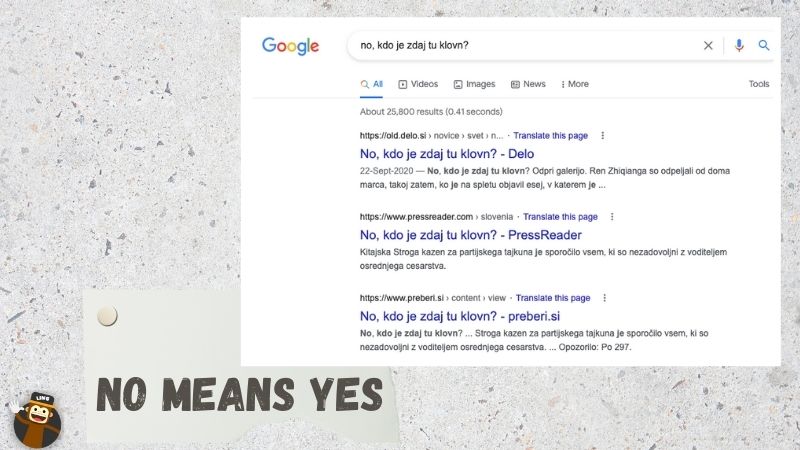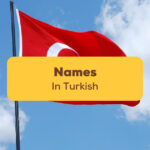Agreements, disagreements, and things in between are part of a usual conversation in any language. There are many phrases and words that you can easily say yes no okay in Slovenian.
In this post, we will walk you through several ways that you can use to say yes no ok in Slovenian. After all, learning these three basic responses can certainly help you navigate your way when communicating with the locals. Fortunately, the translations for these are pretty easy to remember! So without further ado, let’s get started.
Saying Yes No Ok In Slovenian
Every culture has its ways of responding to different questions and statements. Some questions are simply yes no questions that need answers in yes or no. Let’s learn how the locals would say these three expressions in Slovenian.
Saying Yes In Slovenian
There are different ways to say yes in Slovenian. Most of the words are rarely used, but it is still essential to know them just in case a Slovene person chooses to use them. Let’s look at different ways to say yes in Slovenian:
Já
Já in Slovenian is yes. There are different uses of já mentioned here:
- Já is used as a partikula (particle) in many cases. The literal translation in this context would be yep, yes, and yeah. It can be used in a slangish way to reply to any question or simply show affirmation.
- It is also used as a poudarjalni (emphasis). When you want to want to show someone that you are very serious about something you can use Já.
- It is also used as a navezovalni (conjunction). When you want to add something to someone’s speech, feel free to start your sentence with Já.
Dà
Dà has a somewhat similar purpose as já. However, it is mostly used in the written script of Slovenian. Slovenian people usually write Dà when they want to show confirmation/affirmation.
Saying No In Slovenian
No is a funny word in Slovenian. If you speak English, you must know that the word no is used to negate a sentence or provide a negative answer. Imagine asking someone out, and they reply with a “no,” how embarrassing and painful the rejection might sound.
Well, don’t be embarrassed while you are in Slovenia and especially Lubljana. In Ljubljana, no is used as a word for affirmation and confirmation and not the other way around, as seen in most languages like English and Spanish, etc.
Note. You should still be slightly careful with using no as a yes. Since most people are learning the English language, they tend to use no. Your sentence structure should be appropriate. You can also find many examples of “no” in the newspapers and magazines.

While you’re still learning how to agree and disagree with your Slovenian friends, why not also learn new words and phrases? With the Ling app, you can also express your goals, ideals, and other suggestions by at least memorizing Slovenian words on your own. Download the Ling app now on the Play Store or App Store and start your language learning journey with us.
There are different ways of saying No in Slovenian, and some of them are listed below:
Noben
The word noben means none in a general context. It is a way to emphasize the word no. If you want to say no in a serious way, you should use the word noben. For example, the phrase prav nobèn means none whatsoever.
If you are given a weird choice like vadba ali dieta? (exercise or diet?) and you equally hate both; you can say prav nobèn (none whatever).
Ne
Ne is yet another way of saying no. You can use it to ask if something is true or when you need the affirmation of another person. Kako grozen dan, kaj-ne? (What an awful day, isn’t it?).
Mogoče
What could be a better way of denying a proposal without breaking someone’s heart? A great way of saying no in the Slovenian culture is by giving an ambiguous answer. Saying that Slovenian people are extremely straightforward would be the wrong way to put it.
Slovenian people are really friendly, and therefore they prefer to ensure that other people’s feelings are taken care of. Saying this nonchalantly is often considered rude in the Slovenian culture, and thus they are often seen using the term “Mogoče” which means maybe.
There are several situations in which you can use “Mogoče.” For instance, if your co-workers ask you if you would like to join their protest. You might want to say “no” at that moment, but you need time to think and also don’t want to hurt the sentiments of your colleagues, you can say “Mogoče.”
Saying Ok In Slovenian
Here are some of the easy ways to say okay in Slovenian.
Prav
If you want to say okay, you can say prav. Saying prav is a casual and straightforward way of saying okay in Slovenian. Slovenian people use prav a lot in their everyday life. For instance, lahko gremo danes, če prav z večerjo zunaj (We can go today if you are okay with dining outside).
V Redu
Another great way of saying okay is by saying v redu. Slovenian people often ask si v redu? when they think someone seems a little under the weather. If you are up all night studying for an exam, then someone might ask you, “si v redu? Tvoje oči so videti utrujene.” (Are you okay? your eyes look tired).
Kar V Redu
If you wish to say something like “sure, okay,” you could use kar v redu. This translates to pretty good and is usually used in place of okay. You can use this in any casual or slightly formal situation.
Sample Q&A
Let’s now look at some examples using each word.
| Slovenian Sentences | English Translations |
| Ali uporabljate google? | Do you use google? |
| Ja, se | Yes, I do. |
| Ne, ne. | No, I don’t. |
| Ali lahko prevedete ta stavek? | Can you translate this sentence? |
| Ja lahko. | Yes, I can. |
| Ne, ne morem | No, I can’t |
| Ali mi lahko oprostite za trenutek? | Could you excuse me for a second? |
| V redu seveda! | Okay, sure! |
| Ste vi in angleško govoreči slovenski jezik? | Are you an English Slovenian speaker? |
| No, sem Anglež, ki govorim slovensko. | Yes, I am an English person who speaks Slovenian. |
| Ne, jaz sem materni slovenski govorec. | No, I am a native Slovenian speaker. |
| Nauči me nekaj pozdravov v slovenščini | Teach me some greetings in Slovenian |
| V redu, lahko rečeš lahko noč, dobro jutro, dober večer in nasvidenje. | Okay, you can say good night, good morning, good evening, and good afternoon. |
Speak Slovenian Like A Pro
Learn many different languages with no fuss. Contrary to common belief, you do not have to struggle anymore to find the best website to learn Slovene. If you want to learn Slovenian or other Slavic languages, try using the Ling app. It provides proper lessons on each Slavic language fun and easy way.
It also helps you improve your pronunciation with audio examples of different words, thus enhancing your vocabulary and improving your spoken Slovenian. You can learn both formal and informal ways of talking in each language. You should also check out Ways To Say Cheers In Slovenian and Slovenian Names And Nicknames.
Happy Learning!


































































